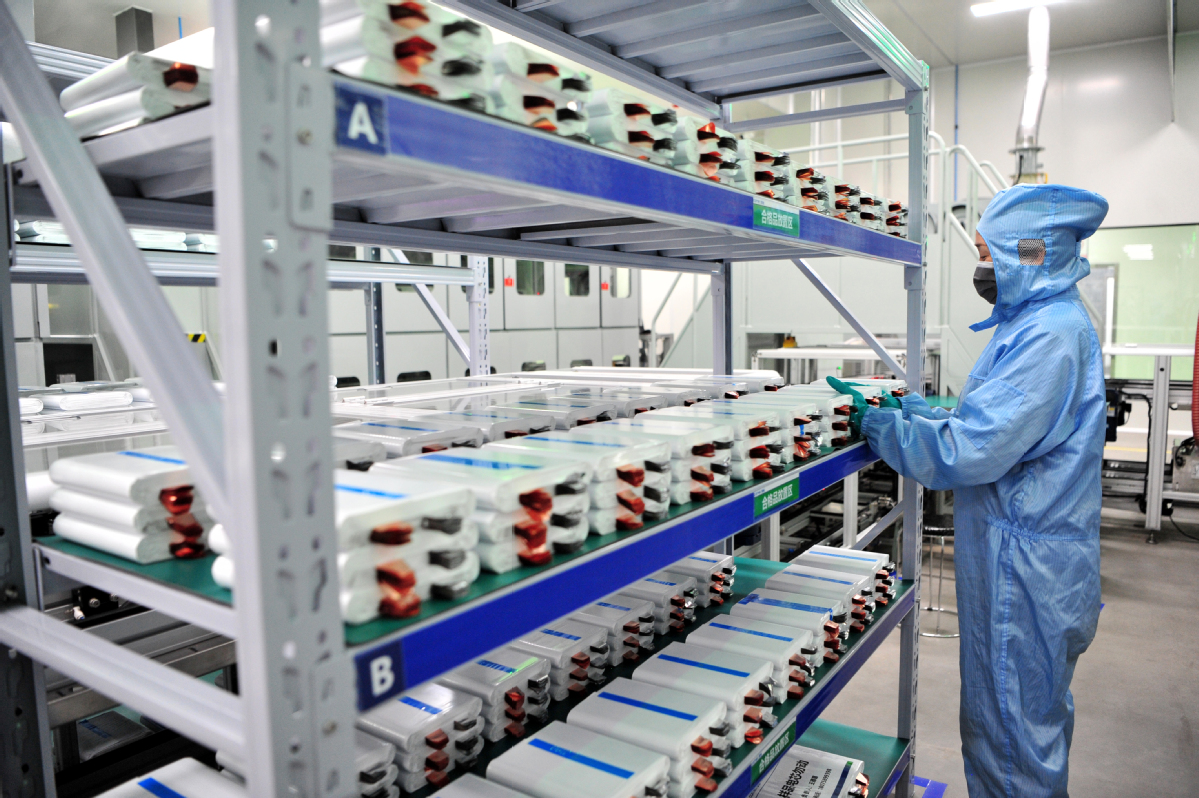EVs spur global interest in battery field


China's battery industry continues to enthuse foreign investors, buoyed by the country's robust demand for electric vehicles and its leading position in battery technologies, said industry experts.
Despite global economic uncertainties, China's battery sector remains attractive to investors, driven by a rapid expansion of the EV market and fueled by government incentives, environmental regulations and growing consumer preferences for cleaner transportation, said Shi Jiayan, an energy storage analyst at BloombergNEF.
"China is currently leading in the commissioned capacity of battery metal refining and battery material manufacturing, and foreign companies, including major automakers and tech giants, are actively seeking opportunities to invest in China's battery industry to capitalize on its growth potential," she said.
The comments came after Chinese President Xi Jinping visited a joint venture of German chemical giant BASF on Monday, a trip that is expected to buoy the confidence of businesses operating in the country.
Xi toured BASF Shanshan Battery Materials Co during a fact-finding trip in Changsha, Hunan province, the first such trip after the annual sessions of China's top legislative and political advisory bodies earlier this month.
According to Shi, overseas companies can benefit from collaborating with Chinese ones by leveraging the country's mature battery manufacturing technology and better commercializing their new battery technologies and products at competitive costs.
While technology was controlled by foreign enterprises in the era of fuel-powered vehicles, China could contribute only cheap labor and raw materials. Sino-foreign cooperation is equal with complementary advantages in today's NEV and power battery industries, said Ma Yinqiong, a senior analyst covering the metals and materials supply chain with Rystad Energy.
"The joint venture between BASF and Shanshan will help the latter quickly integrate into and seize the global market in the global wave of new energy development by taking advantage of BASF's global industrial layout," she said.
"At the same time, it will effectively make up for the shortage of production capacity in China of BASF's cathode materials business, and meet the actual needs of its global market footprint of battery materials business."
According to Ma, the NEV sector is a strategic emerging industry in China and promoting innovation and widespread adoption of NEVs is one of the most important pathways for China to achieve its dual-carbon goals.
China has been comprehensively supporting the development of the NEV industry since 2009 and has been at the forefront globally in terms of production capacity and technological innovation, she said.
The nation's top leadership has underlined new quality productive forces, characterized by high technology, high efficiency and high quality, in underpinning China's high-quality development and reinvigorating the world's second-largest economy.
Accelerating the establishment of a new development pattern and enhancing the level of foreign investment utilization are crucial while the key is to enhance the attractiveness of China's vast market to global investors and optimize the environment for foreign investment, said Cui Fan, a professor at the University of International Business and Economics in Beijing.
Analysts predict that China's battery market will continue to attract significant foreign investment as the country reaffirms its commitment to green energy and technological advancement and as EV adoption accelerates globally.
China's dominance in battery production positions it as a key player in shaping the future of transportation, said Luo Zuoxian, head of intelligence and research at the Sinopec Economics and Development Research Institute.
Areas like high-end manufacturing, digital transformation and efforts toward decarbonization remain attractive for global companies in finding new growth opportunities, as China continues to progress in implementing policies for high-level economic openness and fostering new quality productive forces, said Luo.
Many multinational chemical corporations, including BASF, are committed to deepening their presence in China, motivated by the massive market potential and continuous endeavors to accelerate the development of new quality productive forces, he said.



































